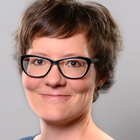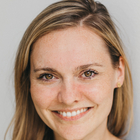Europe? Sustainability?
Time to think about 2019 now!
Kloke-Lesch, Adolf / Christine Hackenesch / Janina SturmThe Current Column (2017)
Bonn: German Development Institute / Deutsches Institut für Entwicklungspolitik (DIE), The Current Column of 18 December 2017
Whilst Germany’s political class focuses on dealing with the outcome of the 2017 Bundestag election, attention in Europe is shifting forwards: preparations are underway for the next EU budget. The so-called Multiannual Financial Framework sets the financial and political priorities of the EU until the end of the 2020s. As things stand, the United Kingdom is set to leave the EU in March 2019. A new European Parliament will be elected in 2019. This will be followed by the forming of a new European Commission. In addition, 2019 will also see the EU submit its first report at the UN summit on implementation of the 2030 Agenda for Sustainable Development detailing its progress and measures for achieving the 17 goals of the agenda (SDGs). It is therefore high time to shake things up in Europe and make the 2030 Agenda the basis of both internal and external European policies. The EU currently finds itself in a difficult situation. Social inequality both within and between member states is on the rise. Governments are divided on the subject of refugee policy. Populist movements and parties are questioning the value of the EU for European citizens. The 2030 Agenda can offer a normative starting point from which to render EU policy more socially, ecologically and economically sustainable - both inwardly and outwardly. For example, as part of the 2030 Agenda and its SDGs the EU has committed itself to reducing inequality within and between countries. However, this path is a long one. During the elections held in several EU member states this year it became clear that the 2030 Agenda is regarded at most as a matter of development and environmental policy. It is lacking wholly from public debate as an overarching narrative for moulding future policy. How can the EU anchor the 2030 Agenda in its policy? So far, there has also been little support for the 2030 Agenda at the highest political levels in Brussels. According to a declaration of the EU Council of Ministers, it is “determined to play a leading role” in the realisation of the 2030 Agenda. The Council conclusions of 2017 also call for the Commission to draw up a strategy with a schedule, goals and specific measures for implementing the agenda. Little is evident of this in political practice. It is also unclear how much political capital the Commission is investing in the drafting of this strategy. There is currently no political process in which the implementation of the 2030 Agenda would be clearly anchored. However, a series of ongoing processes could serve as an anchor from which to further the transformation to sustainable development in the EU: Discussions on the future of the EU initiated by Commission President Juncker in March 2017 and underscored by his State of the Union address in September have so far focused on institutional reforms, economic and monetary policy and security policy measures. The 2030 Agenda could help to develop a superordinated strategic vision for the future of the EU. The new multiannual financial framework will determine whether spending on agricultural policy, the Cohesion Fund, the European Regional Development Fund, research or foreign and development policies will see additional, future-oriented contributions to sustainable development or adhere to the previous path dependency. The EU Council Working Group on the 2030 Agenda established in November should make a goal of anchoring the agenda prominently in the discussion process for the future of the EU, as well as the negotiations for the Multiannual Financial Framework. The Multi-Stakeholder Platform on the Implementation of the SDGs in the EU that met for the first time in December, chaired by the Vice-President of the EU Commission, Frans Timmermans, should maintain a critical eye on these processes. 2030 Agenda in the election campaign for the European Parliament The linking of the European integration project to that of sustainable development should also be made a central issue in the European Parliament election. Against the background of Brexit and the growth of populist movements, candidates will be under increased pressure to communicate to citizens the added value of the EU for their own personal future. The goals of the 2030 Agenda could offer a forward-looking, normative framework for this. The different parties could show how their respective concepts and strategies can contribute to achieving the common goals of the agenda. In the process, there can and should be a debate about conflicts of interest and goals, but also synergies and win-win potential. The realisation of the 2030 Agenda in the EU member states can only succeed with a convincing European strategy. The EU and its member states need to do their homework now to ensure that this can be presented in a credible form at the 2019 UN summit examining implementation of the 2030 Agenda.




